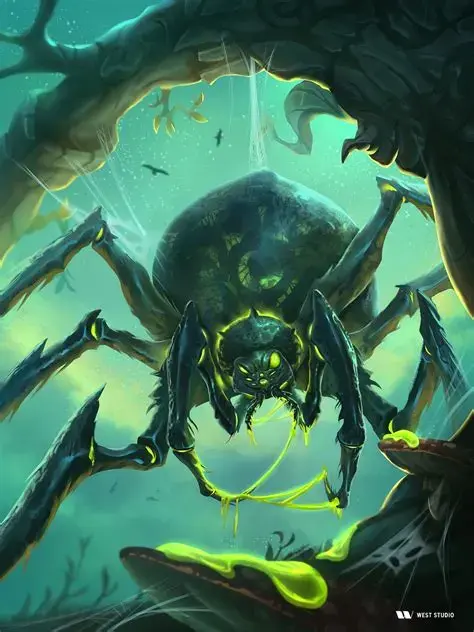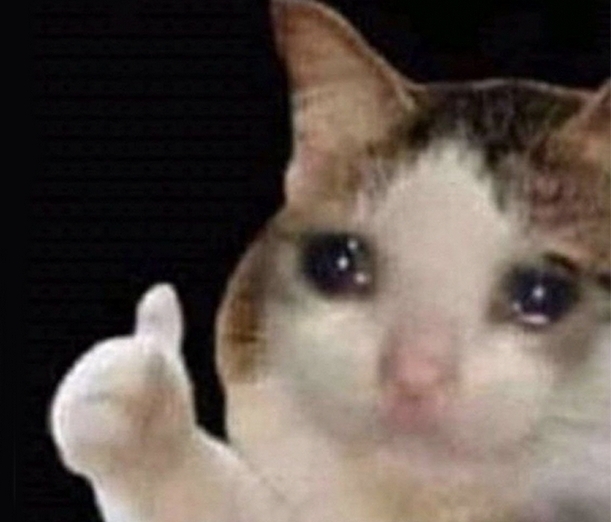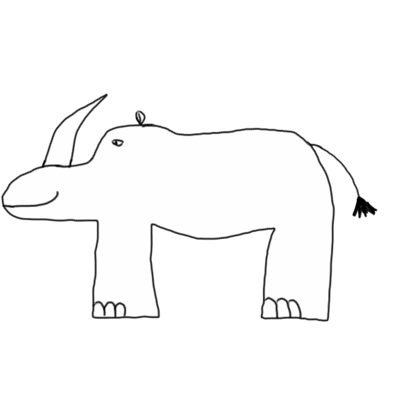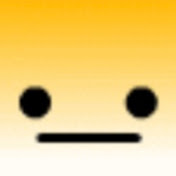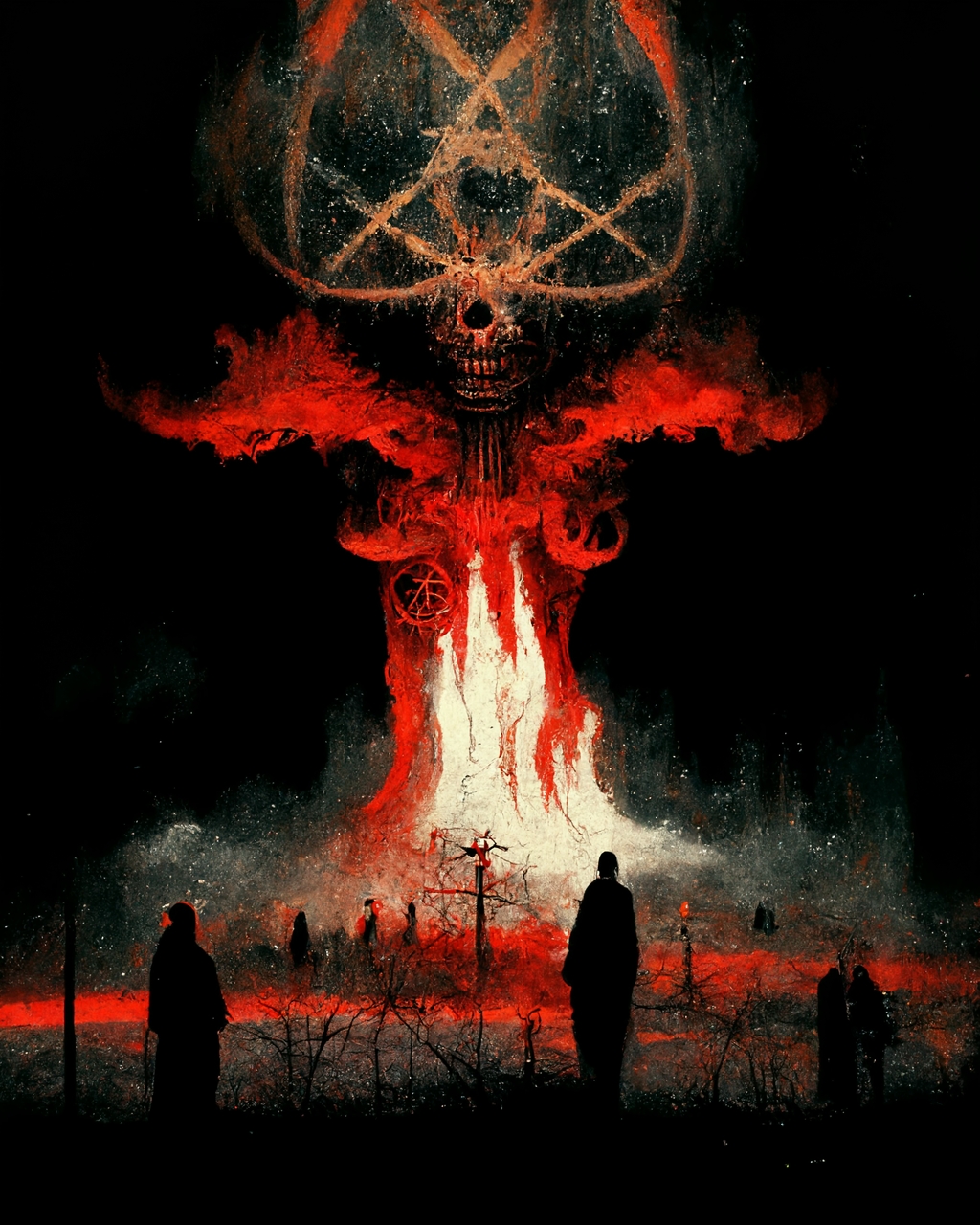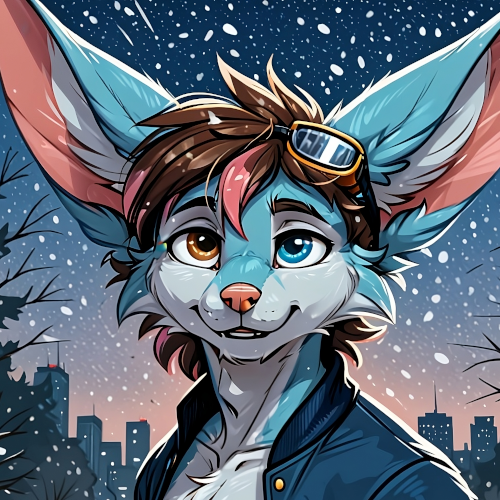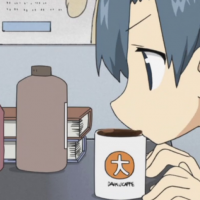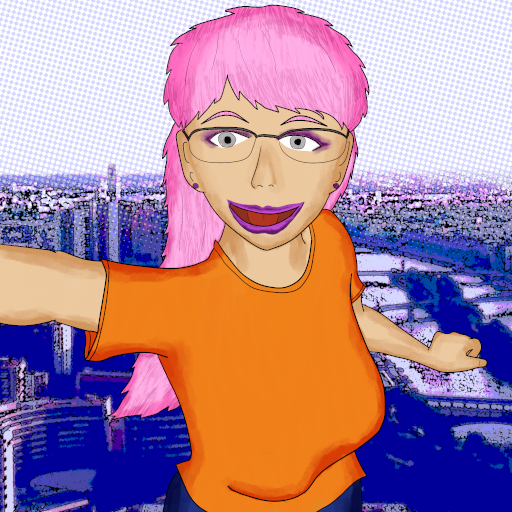I’ve heard arguments for both sides and i think it’s more complicated then simply yes or no. what do you guys think?
Absolutely not. AI images can be mass-produced and two people using the same seed will be able to create the same image. If they’re copyrightable nothing would be stopping a company from making millions of images a day and copyright trolling anyone who tries to use them.
There’s also a lot of other issues like image AIs being trained on real copyrighted data, so nothing stops me from saying “Hey, generate an image of Kirby”. It’s hard to argue that you own that image when it clearly depicts something that isn’t yours.
two people using the same seed will be able to create the same image.
In my experience ONE person using the same seed will not be able to create the same image. I can feed an identical prompt into an AI artist 100 times and be handed 100 similar, but different pictures at the end. This may change as AI science evolves however.
so nothing stops me from saying “Hey, generate an image of Kirby”.
Every AI image creator has blacklisted words/tags for preventing copyright abuse or prevent creation of offensive images. Most AIs won’t draw you pictures of Disney characters (anymore). Many AIs won’t draw pictures of Jesus or public figures like politicians. No AI on the market will draw you a gory execution. The managers of the AI in question just have to implement a blacklist about it and they can stop you from running prompts for whatever they want.
There’s also nothing stopping you from sitting down at your desk and drawing a picture of Kirby with a pen. When you’re done, do you own that image?
I agree with you that AI art shouldn’t be copyrightable or at least, if it is, there should be some significant hoops to jump through. But I don’t think the arguments given here are good reasons why.
In my experience ONE person using the same seed will not be able to create the same image.
I mean actual seed, not prompt. If you’re using something like Stable Diffusion it gives a seed number with each image. Using the same prompt and seed number gives exactly the same image.
Every AI image creator has blacklisted words/tags for preventing copyright abuse or prevent creation of offensive images.
Only the ones you can’t run locally. Most people still use Stable Diffusion because it’s the most powerful and open, and that lets you create anything you’d want and allows you to train it on whatever you’d want. You can make a model based on 500 images of Kirby and it can make similar-looking images with the same art style.
There’s also nothing stopping you from sitting down at your desk and drawing a picture of Kirby with a pen.
This argument never made sense to me. If I’m drawing it, I put in the effort and made it with my own hands. AI image generators can mass-produce images. Not to mention that they’re based off other people’s work, not yours. It’s not the same.
I don’t get it. How is the seed different from the actual data of the picture then?
The seed is more like an address. It’s a number that gets paired with the prompt to tell the model what variation of the thing it should output. Given the same seed and same prompt, the model will output the same image every time, no matter what.
Fair points on the locally run AIs, I admit I don’t have experience with those and didn’t realize they were run differently. I defer to your knowledge there.
I disagree on the drawing point though. Nearly every artist learns their style by learning from other artists, in the same way that every programmer learns to code by reading other code. It IS different, but I don’t think it’s THAT different. It’s doing the exact same thing a human would do in order to create a piece of art, just faster, and automated. Instead of spending ten years to learn to paint in the style of Dali you can tell an AI to make an image in the style of Dali and it will do exactly what a human would - inspect every Dali painting, figure out the common grounds, and figure out how to replicate them. It isn’t illegal to do that, nor do I consider it immoral, UNLESS you are profiting from the resulting image. Personally I view it as a fair use of those resources.
The sticky situation arrives when we start to talk about how those AIs were trained though. I think the training sets are the biggest problem we have to solve with these. Train it fully on public domain works? Sure, do what you want with it, that’s why those works are in the public domain. But when you’re training your AI on copyrighted works and then make money on the result? Now that’s a problem.
As an artist you do not look at how 300 other artists have drawn a banana, you look at a banana and try to understand how you can use different techniques to capture the form, texture, etc. of a banana.
An AI calculates from hundreds of images the probability of lines and colours being arranged in a certain way and still being interpreted as a banana. It never sees a banana or understands what it is.
Tell me, where do you see a similarity in these two processes.
I don’t think copyright should exist, but as long as it does I lean towards “no” because AI images are just copying with extra steps imo
only if you have full rights to every bit of data it was trained on.
Only if the AI is sentient and created the image of its own free will and creativity. Otherwise no.
If the AI created an image with its own free will, it still wouldn’t be copyrightable. Only works created by a human can be copyrighted.
That wasn’t the question.
Whether works generated by non-human intelligence can be copyrighted is an unsettled question of law with conflicting rulings in different courts.
I don’t think AI art should be copyrighted. Copyright is for human creation. The phrase that human generated should be copyright protected (if its unique enough) but not the generated image.
It’s the same argument to Scott’s bear video is public domain, because a bear clicked shutter button, even though camera belonged to tom scott.
It’ls less like a bear and more like a camera that that can navigate the multidimensional latent space filled with concepts that can give rise to novel art. In the real world you can up, down, left, right, in or out, but in a latent space not only can you go those places, you can go to where Muppets meets impasto.
There’s also a spectrum depending on what tool you’re using and your level of involvement, but most people tend to assume and lump everything together into the same category. I know with web based interfaces wit can be slow and cumbersome to iterate, but with open source models based on Stable Diffusion you get a lot of freedom. That’s mostly what I base my knowledge off.



Here are some videos of what I mean:
https://youtu.be/-JQDtzSaAuA?t=97
https://www.youtube.com/watch?v=HtbEuERXSqk
As long as there’s a human to set parameters, iterate, correct, generate, and evaluate, I don’t think there’s any question as to who made it. Just like an image from nature doesn’t need to be a creator, only someone there to capture it.
Here is an alternative Piped link(s):
https://piped.video/-JQDtzSaAuA?t=97
https://piped.video/1d_jns4W1cM
https://www.piped.video/watch?v=HtbEuERXSqk
Piped is a privacy-respecting open-source alternative frontend to YouTube.
I’m open-source; check me out at GitHub.
am smart
“Should AI art be copyrightable?” Is the wrong question. AI is a tool for people to make things. You might as well ask “Should art made in Photoshop be copyrightable?” When you put the two questions side by side, it becomes obvious that yes is the only logical general answer, but the more important thing is the actual process. I can make a drawing of Mario in Photoshop, but I don’t own the copyright for Mario. Meanwhile, I can make a unique logo in Photoshop and I can own the copyright. Simply saying “made with AI” isn’t sufficient for describing the process. For AI, copyrights in their source material and originality of the final product are complicated topics, so the only real solution is that the outputs of an AI will need to be handled on a case by case basis.
No, because creativity is not AI’s strong suit. What AIs “create” is almost always based on something a human being made first.
And corporations will absolutely abuse this copyright law to steal content and revenue from actual, creative people.
What AIs “create” is almost always based on something a human being made first.
The exact same thing can be said for any piece of art created by a human.
It is not the exact same.thing though. Unless you want to claim that you have figured out how human creativity works?
No. It’s too exploitable to be a ‘yes’. Our justice system has proven to be incapable of handling nuance and has a track record of ruling for the already advantaged.
I’m pretty sure in the US this is already answered as “no”. The reason is - non-persons in the legal sense cannot hold copyrights at all. This was tested with photographs I think taken by a monkey and maybe a bear. The AI isn’t a legal person, so cannot have copyright.
That’s not to say humans can’t take an AI image, and manipulate it / clean it up / etc and have copyright in the final result if they do a minor level of touching up or more.
Of course, I find the idea of copyright and IP rights in general as usually expressed pretty insane anyway. The AI “conundrum” is just another point showing how nonsensical IP laws are when you actually think about them and the supposed things they’re meant to accomplish.
If you were to copyright AI art who would the credit go to? The original artists the training was based on? The person who created the training model? The person who writes the prompt? The computer itself? I don’t think copyright makes sense in this context
Judges have ruled that they can’t be copyrighted because of this lack of a true author, and I agree.
Fairly sure that was a case where the guy wanted to give the copyright to the ai algorithm itself and not about the copyrightability of the art. Specifically, he wanted them to be copyrighted as “as a work-for-hire to the owner of the Creativity Machine” - creativity machine is the name of the algorithm. Basically just a modern version of the monkey selfie kerfuffle.
No.
The situation today is that AI images are copyrighted (or not) just like any other images.
Given the power of the copyright industry, I doubt that this will be cut back. In the interest of society, it should be, but denying copyright to AI imagery is not the best place to do this.
The original intention of copyright was the same as that of patents: To encourage the creation of new works by making it possible to monetize them through licensing. AI images can be very expensive to make, depending on what goes into them. Without copyright on these images, we might miss out.
ETA: This purpose of copyright is given in the US Constitution (though it is older). US Americans could think about that. IP is property created to serve the public. That’s the only justification for property to be found in that document.
The original intention of copyright was the same as that of patents: To encourage the creation of new works by making it possible to monetize them through licensing
Not that it really changes much of your larger point, but that’s not really true. The original intention of copyright comes from the Licensing of the Press Act 1662 and the Statute of Anne 1710 and neither of those was intended to encourage the creation of new works. On the contrary, they were intended to discourage the creation of new works. The problem at the time is that people were printing too many new works, many of which were considered a threat to the monarchy and/or the church. Copyright forced all printers to be registered with the Stationers’ Company initially (a crown-monitored guild) and later the crown itself, to aid in censorship and government control of the press.
The Statute of Anne 1710 gives this justification: […]for the Encouragement of Learned Men to Compose and Write useful Books.
There are many precursors, but I don’t think they can be called copyright in the modern sense. All guilds had monopolies which they defended at the expense of society. It was a feature of feudalism that the elites sought to prevent change to preserve their positions.
But yes, copyright is the major remaining limitation on the freedom of the (printing) press.
(It’s interesting how many of the demands to regulate AI are parallel to the controls on the printing press, in the first few centuries after its introduction in Europe.)
The purpose of copyright in the USA, and as far as I know in Brittain, yes.
But please remember that in much of the rest of the world copyright is a reaction to people, creators, getting in trouble over third party usage of their creations.
Leading to the idea that a creator should have the power to stop people from using their works for whatever the creator deems objectionable.
Not as far as I know. The continental European copyright-equivalent preserves feudal ideas.
Rulers granted monopolies to their cronies to allow them to extract money. These privileges were finally abandoned in the wake of the French Revolution. Ethical considerations aside, this was necessary to allow for industrialization/economic development. Except for “copyright”, which is democratized by automatically granting it to everyone, rather than being a special favor. The continental patent system works much like the US one, granting a “mere” 20 year monopoly. Copyright duration is tied to the death of the author, showing its nature as a personal privilege.
Small wonder then that the US copyright industry has come to dominate. Unfortunately, it has leveraged this power for rent-seeking so that much of the harmful, European model was adopted in the US.
You are right, though, that the European model has no regard for public benefit but is quite concerned with the “honor” of the creator.
In Denmark the case surrounding “Nøddebo præstegård” caused copyright to be enacted.
I’ve noticed the theme come up in other countries, amongst these France, but I’ll grant that I may have overestimated its importance by overfitting to prior knowledge.
Do you have more info on that case, please? It’s fine if it’s in danish.
My theoretical answer is this: in an ideal world, there would be no copyright at all. This is an artificial contrivance that was once dreamed up to serve physical-copy economy, and it was rendered obsolete by the digital age. Shit would be so much easier when we got rid of this shit and everyone could share everything by default without any profit motive. (Caveat: This will not work unless literally every jurisdiction on the planet gets rid of copyright laws all at once, otherwise this is way too exploitable due to power imbalance. So I don’t think this is a practical proposition. *cough* unless we all decide Anarchism is a good idea after all *cough*)
My practical answer is this: Welllllll we’re kinda damned if we do and we’re damned if we don’t. My personal feeling is that AI creations aren’t really copyrightable, and even suggesting they are copyrightable is kind of opening a huge can of worms regarding what exactly counts as “creativity” in the first place. The best we can do under current copyright regime is to regulate how the AI datasets are curated, because goodness knows the current datasets weren’t exactly ethically obtained.
The real solution is to solve the power imbalance. What percentage of creative media is controlled by the already obscenely wealthy? We don’t want “non infringing proprietary models” to be the only legal models, because then the only ones with access to such powerful tools are the ones that can afford the Adobe art tax.
We need to hold our governments accountable to hold the oligarches accountable for imbalancing the power struggles to an unethical degree. The common people have received no benefit from technological improvement based productivity gain in the past 50 years and this will only get worse until it is fixed in drastic fashion
The common people need a GUARANTEE to benefit from productivity increases. Unions are also good, but nothing is being done about unethical anti-union campaigning from those with already imbalanced amounts of power and influence.
Yadda yadda. Going after open source models ain’t gonna help. I’m fine pushing for special forgiveness for open models, but don’t just put the ball into the hands of the people who can afford proprietary datasets.
Didn’t a court, at least in the US, already rule that you cannot copyright an AI created image?
Why do you think it’s more complicated than a yes or no?
Some AI generated images can require a lot of tweaking to get a final result. For example, someone might have a workflow that involves generating several images, then picking one as a base. They then take that base, and use img2img to rework certain parts to suit a vision before applying a set of post-processing effects in a traditional editor.
Or, they generate an image and use it as a base for some sort of more traditional art, or use AI generated elements in a work that is otherwise drawn traditionally.
There’s a lot of grey where I think just dismissing any creative vision is doing disrespect to the person that wanted to make something out of that vision, and put in a good amount of work outside just proompting and taking the first image that looked okay.
What it comes down to there is whether the act of selection is an act of art. If there is no skill other than picking, I’m not sure I’d consider it an artistic act. (For similar reasons I’m very much on the fence about a lot of modern art.)
When it comes to selection, we already have a valid form of copyright which is explicitly that- compositions. If I take a bunch of royalty-free songs, and make a book of sheet music where I hand selected songs to be in that book, I can own a copyright on the composition without owning any of the featured material.
So, if someone selects a bunch of individual elements in an image using img2img, is that now a composition?
If you use that approach there is no way left to claim that current AI models aren’t a huge copyright infringement on the data they were trained on. Because the biggest argument for why AI is supposedly not copyright infringing it’s training data, is because it’s generated images aren’t direct copies of the works if was trained upon.
But if you start arguing the idea behind a image or the vision is somehow copyrightable than all AI models are illegal. Since they definitely work by using the ideas and visions of artists.
I’m not talking strictly about ideas, I’m talking about a human having a vision, and taking action to make that vision into something. Whether something is copyrightable requires a “human element,” which is the reasoning behind why machine or animal generated content cannot be copyrighted, because they lack that.
So the question is if someone tweaking an image, even if they’re merely selecting things, then is that a sufficient human element to say that a person had enough hand in creating it?
As they other guy mentioned, there’s a lot more work involved in creating good ai generated images besides just entering some text.
It’s more akin to using a graphics tool like Photoshop, blender, or even like music production with sampled sounds.
While you can just get an image without much work, the really good ones have a lot more work and creativity behind them.
